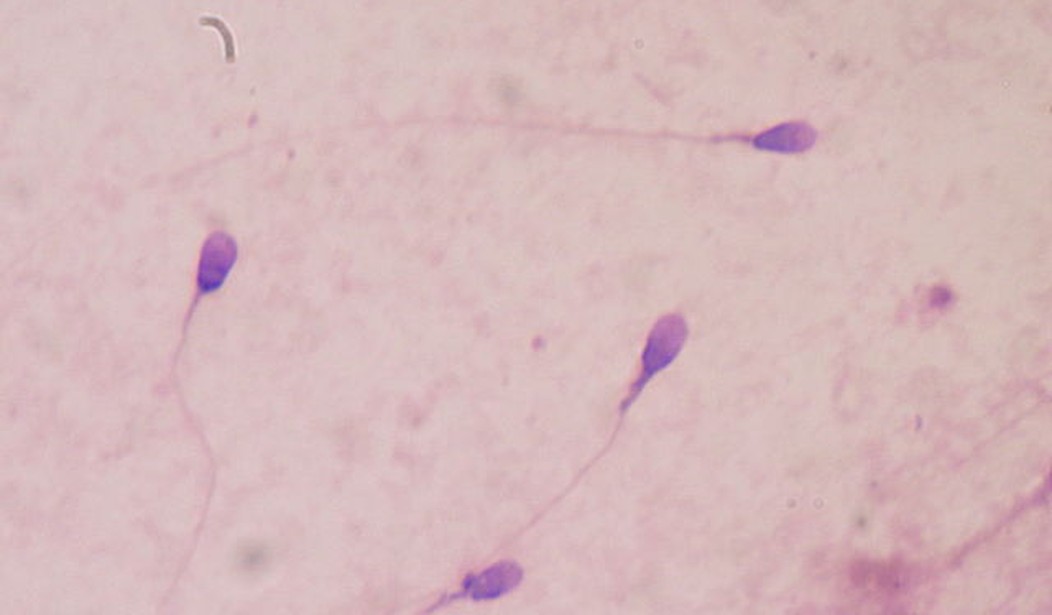Human beings as a species have been the most successful form of life in the history of the planet. We thrive in every corner of the earth regardless of climate or geography. And where the planet conspires to keep us out, we figure out a way to change the landscape to allow us a way in.
Threats to our existence are mostly manmade. Nuclear war and a deadly bug escaping from a Chinese lab are the two most popular disaster scenarios. Then there’s the stray space rock that we’re unlucky enough to get in the way of, or a dozen other scenarios involving cosmic rays, comets, and, my favorite, a nearby gamma-ray burst turning us all into crispy critters.
For our VIPs: The Corporate Left’s COVID Lockdowns and Fertilizer Bans Currently Starve Hundreds of Millions Worldwide
But there’s a looming crisis that beats them all. A recent study of male sperm counts has shown an astonishing drop of 50% in the number of sperm being produced over just the last 50 years.
Their meta-analysis looked at 223 studies based on sperm samples from over 57,000 men across 53 countries.
It shows for the first time that men in Latin America, Asia, and Africa share a similar decline in total sperm counts and concentration as previously observed in Europe, North America, and Australia.
The authors warn that the mean sperm count has now dropped dangerously close to the threshold that makes conception more difficult, meaning couples around the world may encounter problems having a baby without medical assistance.
What gives this problem some urgency is that the drop in sperm counts has accelerated dramatically in the new century. “Data from 1973 to 2018 showed sperm counts dropped on average by 1.2 percent per year. Data from after the year 2000 showed a decline of more than 2.6 percent per year,” the report said.
Falling sperm counts don’t necessarily mean a drop in fertility. After all, it only takes one. But there is a correlation between falling sperm counts and the probability of conception.
The researchers say that while sperm counts are “an imperfect proxy for fertility,” they are closely linked to fertility chances.
They explain that above a threshold of 40–50 million/ml, a higher sperm count does not necessarily imply a higher probability of conception.
On the other hand, below that threshold, the probability of conception drops off rapidly as sperm count declines.
“On a population level, the drop in mean sperm count from 104 to 49 million/ml that we report here implies a substantial increase in the proportion of men with delayed time to conception,” the study’s authors wrote.
How did this happen? We know that some chemicals we’re all exposed to on a daily basis have an effect on the fertility of both men and women. But scientists are unsure how the sperm counts got so low so quickly.
Obviously, there’s no need to panic. Science will be able to boost sperm counts if the need arises. And there’s always IVF and other artificial means to conceive.
We’re not dead yet. But when you consider every single species that has ever existed on planet earth has gone extinct eventually, there’s no reason not to expect a world without humans.










Join the conversation as a VIP Member